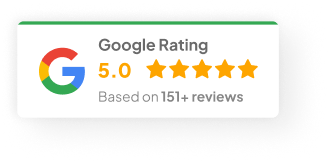03 Oct 25
Best Ecommerce Platform for Start-Up Businesses
Starting an online store right now is both exciting and, honestly, a bit overwhelming. The opportunities are huge—people are shopping online more than ever—but the competition is just as fierce. The platform you pick at the start isn’t just a technical choice. It can decide whether you’re setting yourself up for growth or headaches down the track.
Get it wrong and you’re staring at slow load times, abandoned carts, and costs you didn’t budget for. Get it right and you’ve got a strong foundation—something that grows with you, runs smoothly on mobile, and keeps customers buying instead of bouncing.
What Startups Should Really Look For
Most founders don’t have time or money to burn, so the basics matter. When choosing a platform, make sure it covers:
- Pricing that doesn’t blow out early budgets
- Simple setup—you don’t want to spend weeks learning code
- Scalability when traffic suddenly spikes
- Mobile-first design (over 60% of eCommerce traffic is mobile)
- Built-in tools to boost conversions (fast checkout, trust badges, integrations)
- Decent support and a community around it
Keep those in mind, and the field narrows down pretty quickly.
1) Shopify
Shopify is the platform most people think of first, and for good reason. It’s hosted, reliable, and you can literally be up and running in a weekend.
Strengths:
- Super easy to use
- Fast and stable hosting
- Huge library of apps and plugins
- Checkout flow is built to convert
- Good SEO and marketing features out of the box
Weaknesses:
- Transaction fees if you don’t use Shopify Payments
- Costs stack up with premium themes or apps
- Heavy customisation needs higher-tier plans
Shopify’s checkout converts 12% better on average than BigCommerce. For startups, that margin can mean survival or failure.
2) WooCommerce (with WordPress)
WooCommerce is a free plugin that bolts onto WordPress. It’s flexible and powerful, but it does take more hands-on work.
Strengths:
- Endless customisation via plugins
- Fantastic for content-heavy stores and SEO
- Low upfront cost
- Massive community and resources
Weaknesses:
- Hosting, security, and speed are on you
- Premium plugins add hidden costs
- More technical compared to Shopify
WooCommerce powers 35% of online stores globally. That kind of dominance means you’ll never struggle to find help or developers, but you’re in a crowded field.
3) BigCommerce
BigCommerce is like Shopify’s more serious cousin. Still hosted, but comes with a lot more built-in features.
Strengths:
- No transaction fees
- Solid product/catalog tools
- B2B support is better than most
- Multi-channel sales baked in (Amazon, eBay, etc.)
Weaknesses:
- Not as many themes or apps as Shopify
- Slightly steeper learning curve
- Design feels more rigid
It powers over 60,000 merchants worldwide and works well if you’re thinking about scaling or selling across multiple channels early on.
4) Magento / Adobe Commerce
Magento is the heavy-duty option. It’s insanely powerful but also resource-heavy. Not for the faint of heart or wallet.
Strengths:
- Handles massive catalogs with ease
- Multi-storefront, multi-currency, multi-language ready
- Customisable for unique business models
- Strong security
Weaknesses:
- Expensive build and upkeep
- Needs a proper development team
- Long setup process
It still holds about 8% of global market share, which is impressive given the competition. It’s more for mid-to-large businesses, though, not bootstrapped startups.
5) Wix & Squarespace
For anyone testing the waters or running a small product line, site builders like Wix and Squarespace are worth a look.
Strengths:
- Dead simple setup
- Affordable entry-level plans
- Good-looking templates
Weaknesses:
- Limited scalability
- Fewer advanced features
- Weaker SEO/customisation options
Good choice if you’re validating an idea or just dipping your toe in. Not great for long-term scaling.
So, Which One Fits Startups Best?
To make it more concrete, here are some suggestions based on different startup types:
|
Startup Type |
Recommended Platform |
Why It Makes Sense |
|
Selling just a few products, tight budget, don’t want tech headaches |
Shopify (Basic or Starter) |
Easy to get off the ground, no server headaches, and the checkout is already built to work. Perfect if you just want to start selling without overthinking it. |
|
Store built around content—lots of blogs, articles, guides |
WooCommerce on WordPress (with solid hosting) |
WooCommerce plugs straight into WordPress, so it’s ideal if content is the driver. Full design control, loads of plugins, and it scales if the hosting’s decent. |
|
Fast-moving B2C brand with growth plans |
Shopify Plus or BigCommerce |
Both can grow with you. Shopify Plus usually wins on checkout performance, while BigCommerce comes with more features baked in—saves you from stacking too many apps. |
|
Complex setup: big catalog, multiple countries, high volume |
Magento / Adobe Commerce |
This is heavy-duty. Handles all the complexity, from multilingual stores to custom setups. But it’s not cheap and you’ll need developers who know their stuff. |
|
Hobby brand or lifestyle product testing the waters |
Wix or Squarespace |
Drag-and-drop, cheap, fast to launch. Good way to see if people even want what you’re selling before sinking real money into it. |
|
B2B startup with bulk orders or tiered pricing |
BigCommerce or Magento |
Both are strong here. BigCommerce is simpler if you’re starting smaller, while Magento gives you more flexibility if you’ve got big B2B plans. |
|
Selling subscriptions or digital products |
Shopify with apps, or WooCommerce with add-ons |
Both can handle subscriptions. Shopify keeps things simple and reliable, WooCommerce gives you more room to customise the flow. |
Why Conversions Trump Everything
Platform choice is only half the equation. What matters is turning traffic into sales. Average global conversion rates sit at just 2.86%. That means out of 100 visitors, 97 leave without buying.
Things that make the difference:
- Page speed (a one-second delay = 7% fewer conversions)
- Checkout flow that works well on mobile
- Clear product images and descriptions
- Trust signals—reviews, returns, secure payments
The platform helps, but the execution matters more.
Why Work with Chromatix
This is where Chromatix comes in. The team has been building eCommerce sites for years and learned that design alone doesn’t cut it. A gorgeous site that doesn’t convert is just wasted potential.
The focus is on creating online stores that look great and sell. That means:
- Mapping customer journeys
- Streamlining checkout flows
- Speed optimisation
- UX that’s simple but smart
That’s why Chromatix is known for building sites that aren’t just pretty—they’re profitable.
Conclusion
Choosing an eCommerce platform is one of the first big decisions a startup founder makes. Shopify, WooCommerce, BigCommerce, Magento, Wix—they’ve all got strengths, but the “right” one depends on budget, goals, and how fast you want to grow.
The platform sets the stage. The way the site is built determines whether people actually buy.
Chromatix has been helping businesses get this right for years. If the goal is to launch strong and grow faster, it’s worth getting a team that knows how to balance design with conversions.


